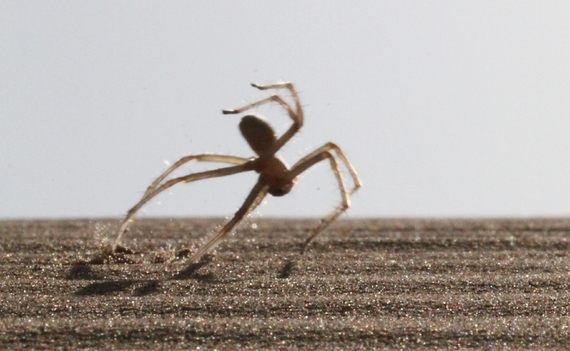Seven days; lots of science in the news. Here's our roundup of some of the most notable and quotable items:
The alphabet of life just got 50 percent bigger; scientists created an E. coli bacteria that carries DNA with two extra synthetic nucleotides, X and Y, in addition to the familiar A, C, G, and T. Researchers discovered ancient rock lines carved in 300 B.C. Peru marking the sites of ancient fairgrounds, a spider in the Sahara desert that somersaults away from predators, and a long-nosed dinosaur dubbed Qianzhousaurus sinensis (but nicknamed "Pinocchio Rex").
Songbirds migrating at night can be thrown off by AM radio signals. Supercomputers made the most detailed simulation of the universe's evolution yet, spanning 13 billion years of history in a chunk of space 330 million light-years across. Kelp collected from the U.S. West Coast do not show signs of radiation contamination from the 2011 Fukushima nuclear plant accident.
Men take longer to recover from concussions than women. Erectile dysfunction drugs like Viagra could be used to treat Duchenne muscular dystrophy. A new device identifies insects by using a laser to count the number of wing beats per second. A group of researchers would like to shoot missiles at Mars to try and see if life is buried beneath the planet's surface.
This April average air levels of carbon dioxide climbed to the highest levels ever seen in human history. While climate change seems to make crops like wheat and rice less nutritious, it does provide a boost to a type of slimy algae called "rock snot."
"This Week In Science" is presented by the World Science Festival, which runs from May 28 to June 1 in venues across New York City. For tickets and more information, check out the festival website.
